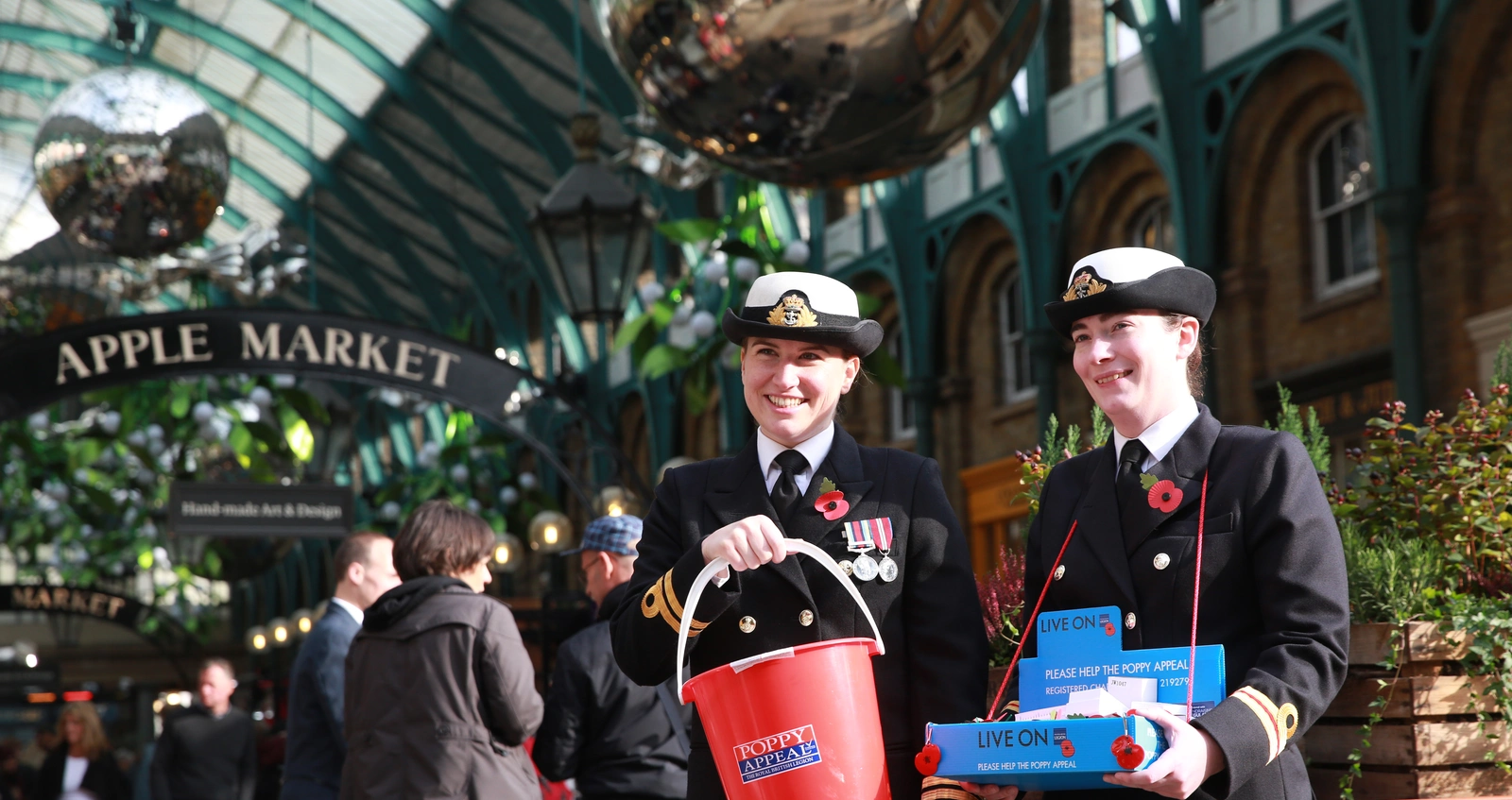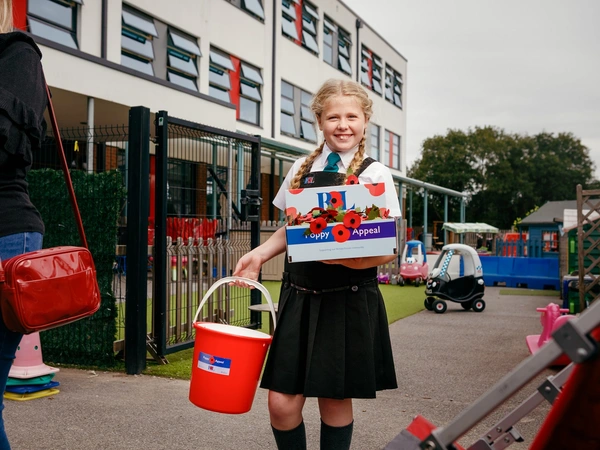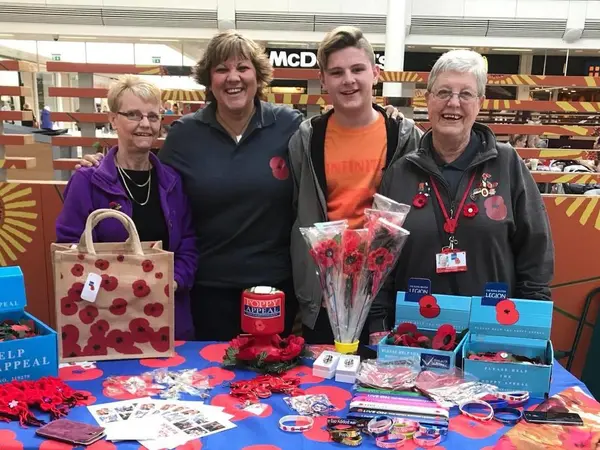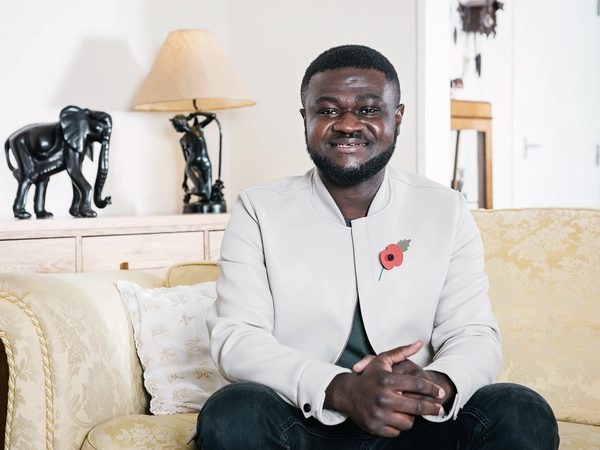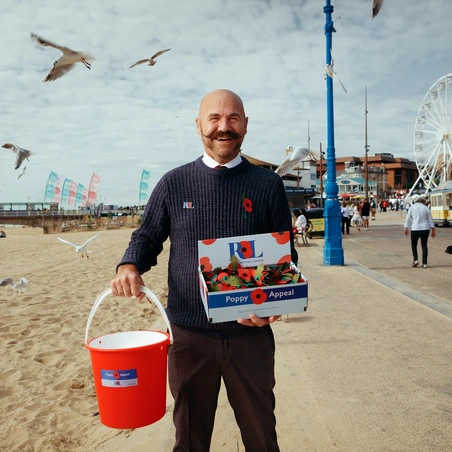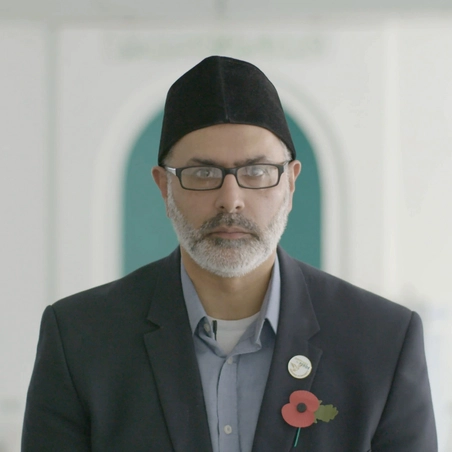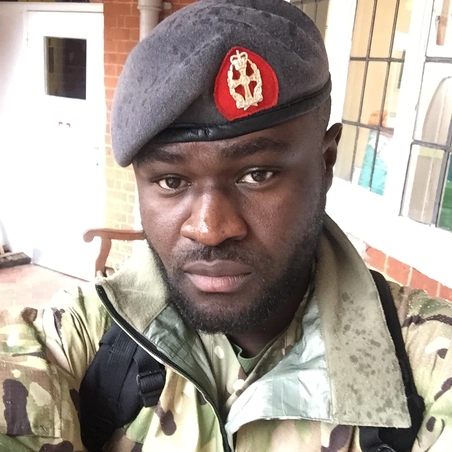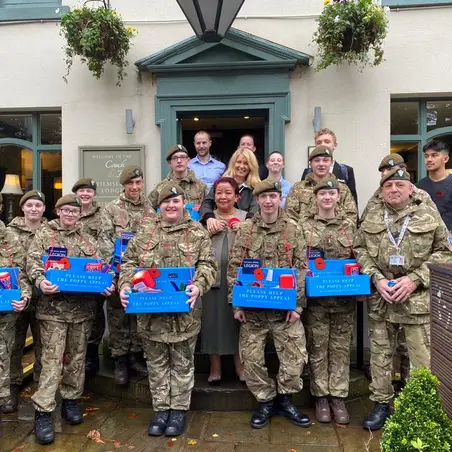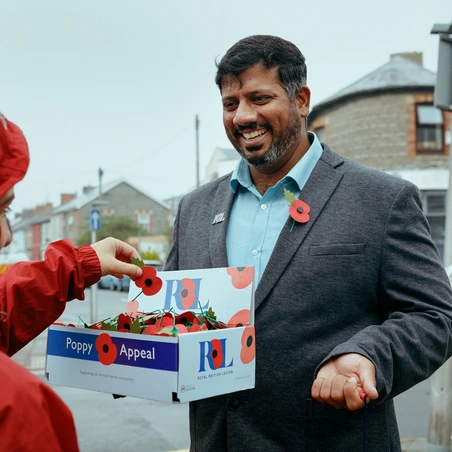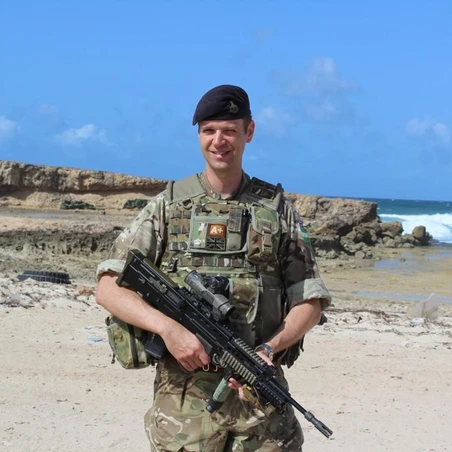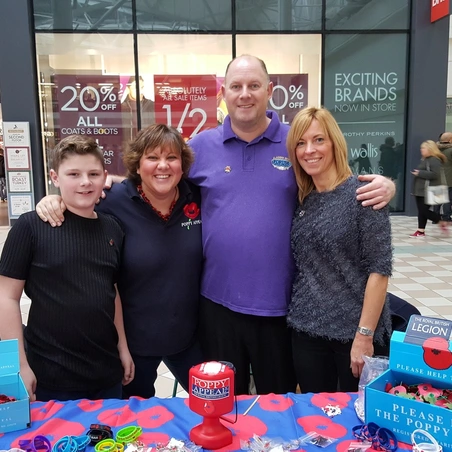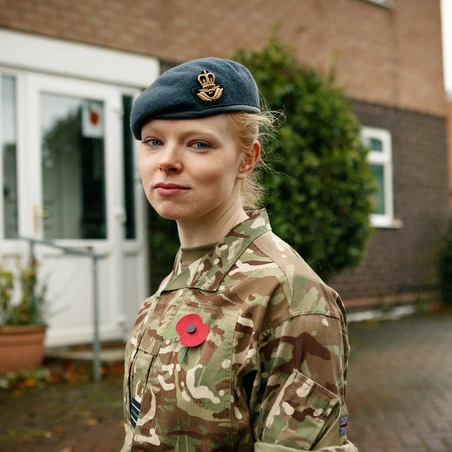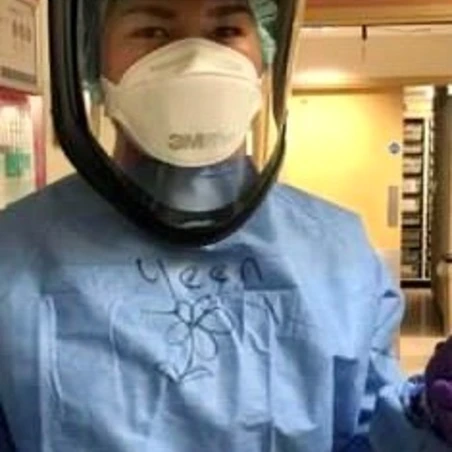Our volunteers are incredible and give up hours of their precious time to support our Armed Forces community.
We have thousands of volunteers who help us with our annual Poppy Appeal and day-to-day operations across the country.
We want to thank each and every one of you for your tireless support, we couldn’t do it without you.
Maisie Mead, Poppy Appeal collector
10-year-old Maisie Mead is a Poppy Appeal collector in Plymouth and has been involved in the Poppy Appeal since she was four. She began supporting RBL after her dad was injured and medically discharged, and collects because she wants to help other soldiers like her dad, who joined the Armed Forces very young.
Meet our Poppy Appeal collectors
Sian Cameron, Poppy Appeal Organiser
"For two full weeks I just get to talk to some really amazing people from all walks of life.” - Sian Cameron has been a Poppy Appeal Organiser since 2010 after taking over from her father after he sadly passed away.
Read more
Sergeant Ben Poku, Volunteer Caseworker
“The Royal British Legion means everything to me, that I can be there to help service men and women.” - As well as being a military nurse Sgt Ben Poku also volunteers as a caseworker and is the first point of contact for people who need support.
Read more
Volunteer Stories
Volunteer with us
We have a range of volunteering roles across the country
Search and apply for roles

